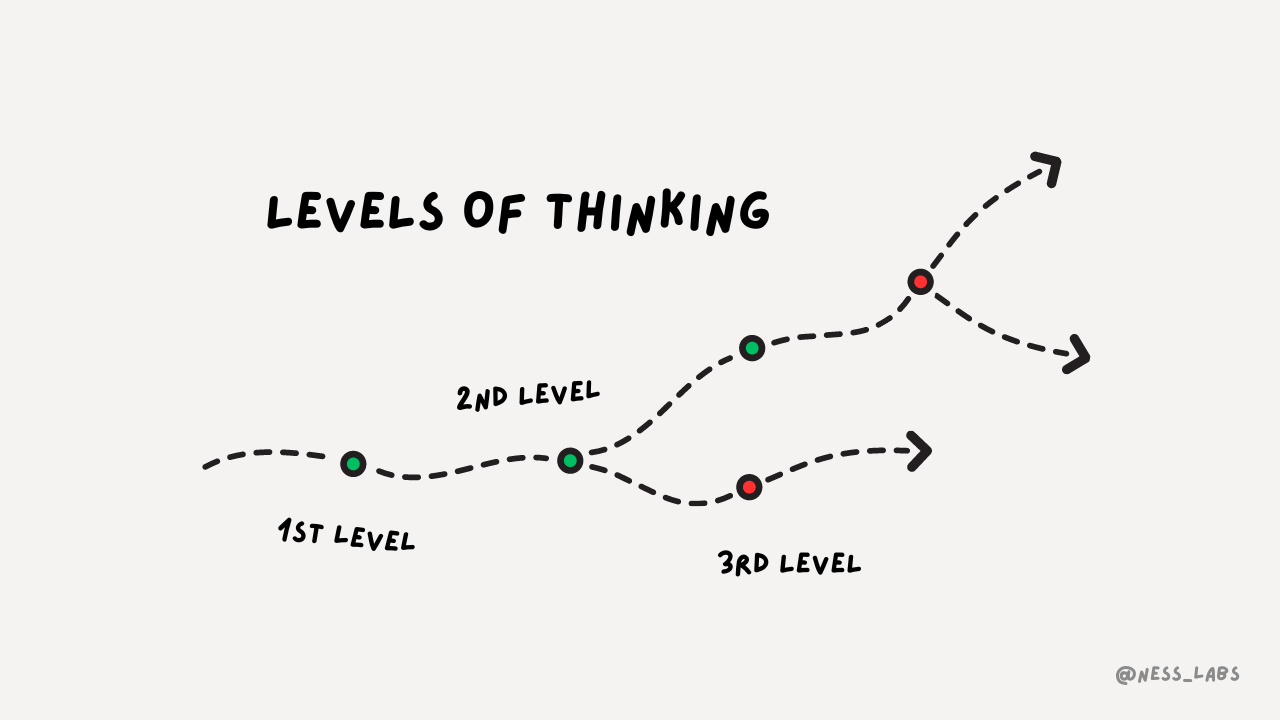Levels of Thinking: How to Make Better Decisions with Second-Level Thinking

🌈 Abstract
The article discusses the concept of "first-level thinking" and "second-level thinking" in decision-making, highlighting how focusing only on immediate benefits can lead to unintended consequences, while considering long-term implications can result in better outcomes.
🙋 Q&A
[01] Pitfalls of First-Level Thinking
1. What are some examples of first-level thinking leading to poor decisions?
- Skipping meals to save time, but ending up exhausted and unproductive
- Choosing a cheaper apartment to save money, but the long commute ends up costing more time and energy
2. How does first-level thinking often result in snapshot decisions? First-level thinking involves looking at the information in front of us and making a quick decision based on obvious indicators, without considering the complex interconnections and potential long-term consequences.
3. What are the potential downsides of prioritizing immediate rewards over sustainable growth?
- It can lead to poor long-term outcomes
- Focusing only on obvious benefits while overlooking hidden costs can result in financial strain
- Making decisions without considering ethical ramifications can damage reputation and relationships in the long run
[02] Benefits of Second-Level Thinking
1. What is an example of second-level thinking? Pausing to consider a job offer not just for the salary, but also for the growth opportunities and work-life balance, is an example of second-level thinking.
2. How can second-level thinking lead to extraordinary performance? When we take the time to consider the second and third-order consequences, including our own biases, and try to disentangle the signal from the noise, we're more likely to determine the most favorable decision.
3. What questions can help cultivate second-level thinking? The article suggests using the "10-10-10" questions, which encourage considering the short-term, medium-term, and long-term implications of a decision.